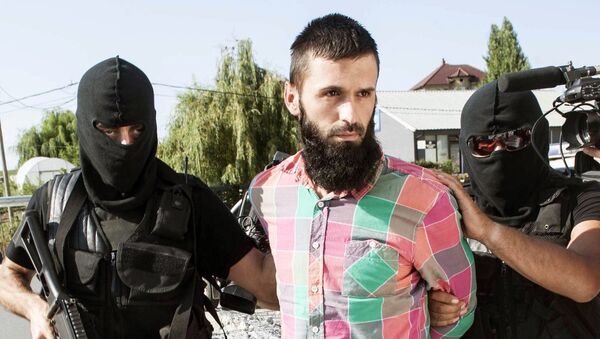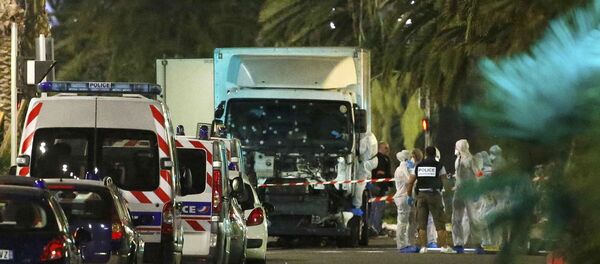Trifunovic believes that the problem of Islamic terrorism has an ideological dimension which has been neglected in the war on terrorism in the Middle East and elsewhere.
"Everybody is trying to avoid talking about the religious component, religion is being used to motivate people towards violence. Suicide bombers shout 'Allahu Akbar,' and before that they photograph themselves with the Koran and a Kalashnikov. Politicians are trying to sweep the problem under the carpet."
"In Serbia, somebody has been trying to recruit our children for years. Roma, Albanians, Muslims in Novi Pazar, they are leaving for the battlefields in Syria and Iraq."
On July 14 84 people were killed in a terrorist attack in Nice committed by 31-year-old Tunisian national Mohamed Lahouaiej-Bouhlel. Trifunovic said that while Lahouaiej-Bouhlel was known to police, his transformation from petty criminal to Islamic terrorist was difficult to predict.
"This is just one case. Remember Mirsad Bektasevic, the child who was rapidly radicalized in Sweden (Bektasevic was born in Serbia, grew up in Sweden and was imprisoned for terrorist offenses before traveling to Syria to fight for Daesh; he was arrested again in January 2016 in Greece.) Sulejman Talovic, Sead Jakaupij. These are all people who had minor problems with the law which did not indicate that they would later do something serious," Trifunovic said.
"If an anti-radicalization team is formed, I think Mr. Zukorlic should be in it, according to the British model. They have made one of their most radical imams, Asim Hafis, one of the main figures in the fight against radicalism. We need to get our leaders involved," Trifunovic proposed.
"Serbia has a great advantage. We have indigenous Muslims from our country who were born here, they are our flesh and blood, they just have a different religion. They should be our country's first line of defense."
Mufti Muhamed Jusufspahic, President of Serbia's General Assembly of the Islamic Community, was appointed Serbia's ambassador to Saudi Arabia last year. Trifunovic said that diplomatic relations with Saudi Arabia are crucial because of the kingdom's influence on radical Islam.
"That contact is very important because Saudi Arabia is the main generator of terrorism," said the analyst, and referred to revelations about Saudi involvement in the 9/11 terrorist attacks.
"In Serbia, they are financing the construction of unnecessary religious institutions. If our citizens acted reciprocally and tried to build churches in Saudi Arabia, they would get the death penalty. There, you are not allowed to build any religious building apart from Islamic ones, and here they are allowed to do whatever they want across Serbia," Trifunovic complained.




